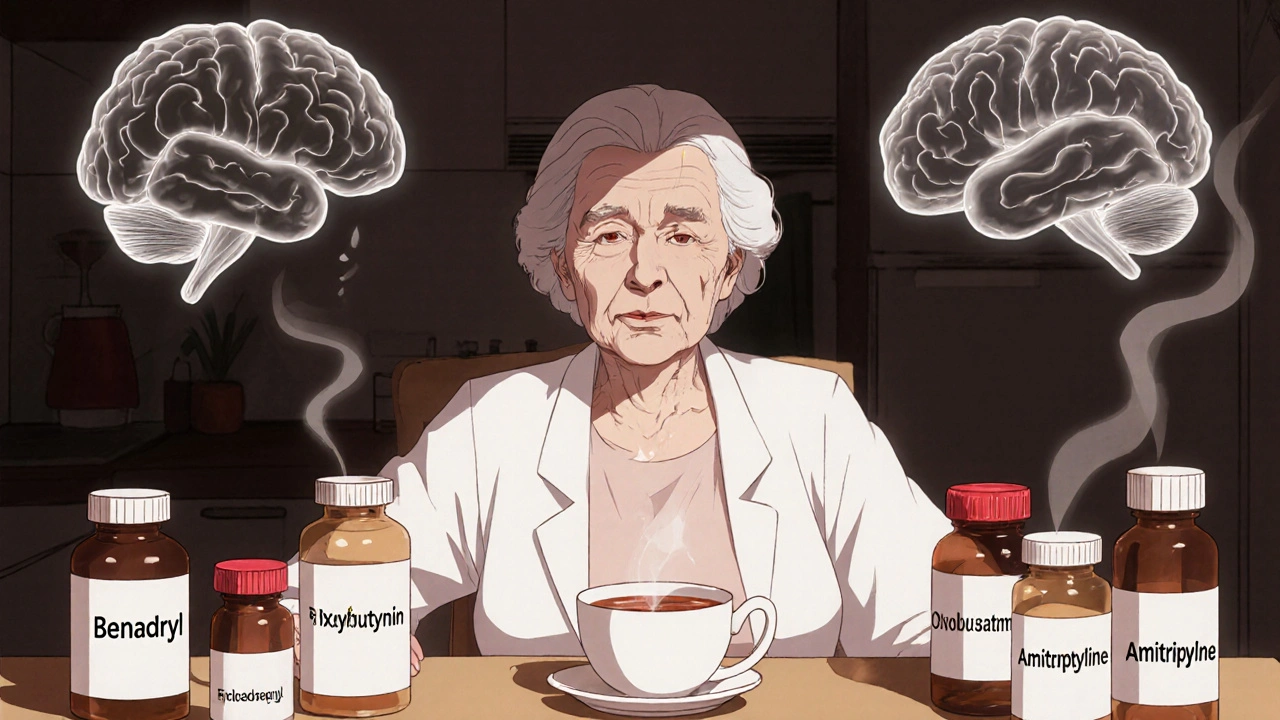Anticholinergics: What They Are, How They Work, and What to Watch For
When your body’s natural signals get mixed up—like when your bladder contracts too often or your muscles shake uncontrollably—anticholinergics, a class of drugs that block the neurotransmitter acetylcholine to calm overactive nerves. Also known as cholinergic blockers, they’re used to treat everything from motion sickness to overactive bladder, but they don’t come without trade-offs. These drugs stop acetylcholine from binding to receptors, which slows down involuntary movements and secretions. That’s why they help with tremors in Parkinson’s, reduce saliva during surgery, or stop your bladder from spasm. But that same mechanism is why you might end up with dry mouth, blurry vision, or trouble peeing.
Many people don’t realize how common anticholinergics are. You might be taking one for allergies (like diphenhydramine in Benadryl), for sleep (doxylamine), or even for depression (amitriptyline). And while they work, the long-term use—especially in people over 65—is linked to cognitive impairment, a decline in memory and thinking skills tied to prolonged anticholinergic exposure. A 2019 study in JAMA Internal Medicine found that people taking high doses of anticholinergics for three years or more had a 54% higher risk of dementia. That’s not a small risk. It’s not just about feeling a little drowsy—it’s about your brain’s ability to function over time. And then there’s urinary retention, the inability to fully empty the bladder, a common and often overlooked side effect, especially in men with prostate issues. Dry mouth? Sure. Constipation? Common. But if you’re taking multiple anticholinergics—say, one for allergies, one for sleep, and one for bladder control—you’re stacking up the risks without realizing it.
What’s tricky is that these drugs often slip under the radar. Doctors don’t always ask about OTC meds, and patients don’t think of Benadryl as a "medication" worth mentioning. But if you’re over 60, taking more than one drug, or noticing you’re more forgetful, slower to react, or struggling to get up at night to pee, it’s worth asking: Could anticholinergics be part of the problem? The good news? There are often safer alternatives—like mirabegron for overactive bladder instead of oxybutynin, or non-sedating antihistamines instead of diphenhydramine. You don’t have to live with side effects just because they’re "common." The post collection below dives into real cases, hidden risks, and practical swaps that actually work. You’ll see how people managed their symptoms without stacking up dangerous drugs, what to ask your pharmacist, and how to spot the early signs that your meds might be doing more harm than good.
Anticholinergics: How These Common Medications Affect Memory and Cause Dry Mouth
Anticholinergic medications like oxybutynin and Benadryl can cause memory loss, brain shrinkage, and chronic dry mouth-especially in older adults. Learn which drugs are most risky and what safer alternatives exist.
